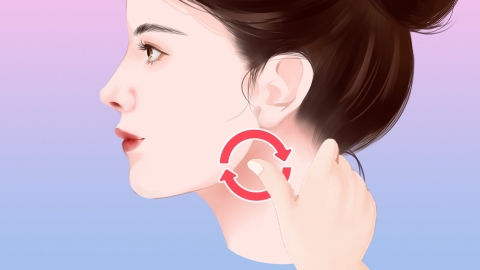What are the causes of hypothyroidism, and how is it treated?
Generally, the main causes of hypothyroidism include aging, abnormal iodine intake, Hashimoto's thyroiditis, thyroid surgery, and radioactive iodine therapy. If discomfort symptoms occur, general treatment, medication, or surgical treatment may be selected according to the specific situation to improve the condition. Detailed analysis is as follows:
1. Aging
With increasing age, thyroid tissue gradually degenerates, and the capacity for thyroid hormone synthesis and secretion declines, making hypothyroidism more likely to occur. Regular thyroid function examinations are recommended, with annual check-ups advised for individuals over 40 years old. Maintaining regular作息 (作息 translates to作息 habits or lifestyle routines) and avoiding excessive fatigue can help delay thyroid tissue degeneration.
2. Abnormal Iodine Intake
Long-term insufficient or excessive iodine intake can interfere with thyroid hormone synthesis, leading to hypothyroidism. Dietary adjustments should be made accordingly. In iodine-deficient areas, individuals may consume iodized salt, seaweed, and other iodine-rich foods in appropriate amounts. For those in regions with excessive iodine intake, consumption of high-iodine foods should be reduced, and urinary iodine levels should be monitored regularly to maintain iodine balance.

3. Hashimoto's Thyroiditis
Hashimoto's thyroiditis, caused by immune system abnormalities, damages thyroid follicular cells, leading to decreased thyroid hormone secretion and resulting in hypothyroidism. Under a physician's guidance, medications such as levothyroxine sodium tablets, thyroid extract tablets, and selenium yeast tablets may be used to supplement thyroid hormones, regulate immune function, and reduce thyroid tissue damage.
4. Thyroid Surgery
Partial or total thyroidectomy performed due to thyroid nodules, hyperthyroidism, or other conditions reduces thyroid tissue and impairs hormone synthesis capacity, increasing the risk of hypothyroidism. Postoperative follow-up examinations of thyroid function should be conducted regularly as directed by a physician. Based on test results, medications such as levothyroxine sodium tablets and thyroid extract tablets may be prescribed to supplement hormones and maintain stable hormone levels.
5. Radioactive Iodine Therapy
Radioactive iodine therapy destroys thyroid tissue and is commonly used to treat hyperthyroidism. However, excessive damage to thyroid tissue following treatment may lead to hypothyroidism. Long-term monitoring of thyroid function after treatment is necessary, and under medical guidance, medications such as levothyroxine sodium tablets, thyroid extract tablets, and liothyronine sodium eye drops may be used to supplement hormones and alleviate symptoms.
In daily life, it is important to maintain a balanced diet rich in proteins and vitamins, engage in moderate exercise such as walking or yoga to enhance physical fitness, keep warm to avoid cold-induced symptom exacerbation, and undergo regular thyroid function check-ups to adjust treatment plans based on test results.








